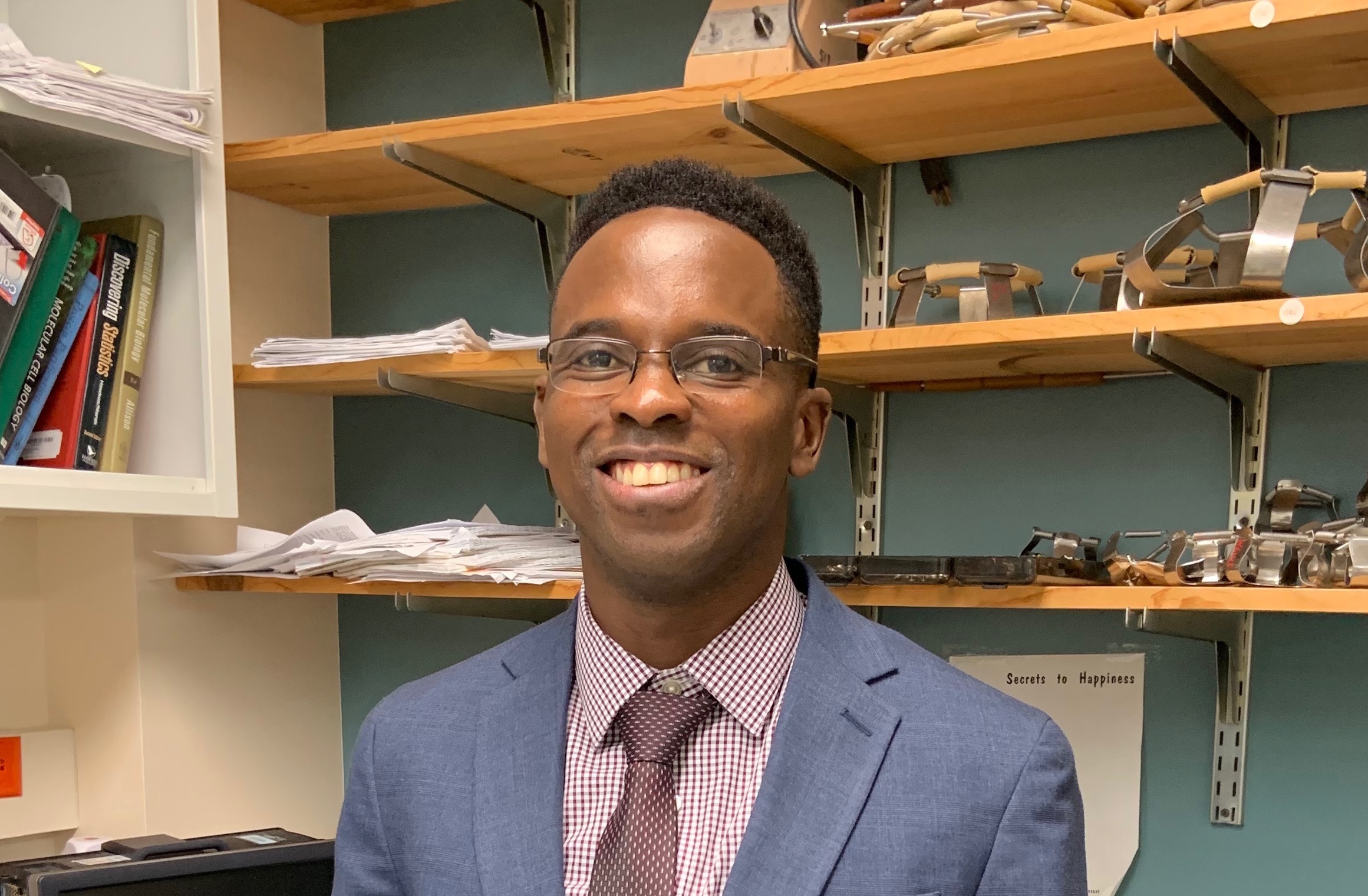View Larger Image

Tresor Mukiza on the day of his dissertation defense, Dec. 5, 2019.
Image by Reine Protacio
UAMS Graduate Student Recognized for Research Publication
| Tresor Mukiza, a Ph.D. student at UAMS, received high honors for his first-author publication in the November issue of the journal Genetics. The editors selected the paper to be featured in a Highlight, and cover art for the article was displayed on the journal home page during the month of publication.
“This is a notable accomplishment,” said Wayne Wahls, Ph.D., professor of Biochemistry and Molecular Biology and mentor for Mukiza’s doctoral dissertation research. “It reflects the high quality of Tresor’s research and the importance of his findings to the scientific community.”
In humans, the wrong number of chromosomes (aneuploidy) is the leading cause of spontaneous pregnancy loss, intellectual disability, and congenital birth defects such as Down syndrome. This stems from errors in chromosome segregation during meiosis, which produces the reproductive cells (sperm and eggs) of the parents. Because the fundamental features of meiosis are conserved from fungi to humans, the Wahls’ laboratory uses an exceptionally powerful model organism, the fission yeast S. pombe, to study molecular mechanisms of meiosis.
In their paper, Mukiza and his co-authors Reine Protacio, Ph.D., Mari Davidson, Ph.D., Walter Steiner Ph.D., and Wayne Wahls, Ph.D. report that DNA sequence elements and their binding proteins remodel the structure of chromosomes to regulate the distribution of homologous recombination during meiosis. “This provides important clues about the meiotic origins of aneuploidy,” said Mukiza, “because correctly positioned homologous recombination is essential for the proper segregation of chromosomes in meiosis.”
Mukiza earned a bachelor’s degree in biology with a minor in chemistry, Magna Cum Laude with Distinction in Biology, from Hendrix College. He was just awarded his Ph.D. degree in biochemistry and molecular biology from UAMS. Mukiza’s dissertation research was supported by a $1.2 million grant to Wahls from the National Institute of General Medical Sciences, which is the basic science institute within the National Institutes of Health.